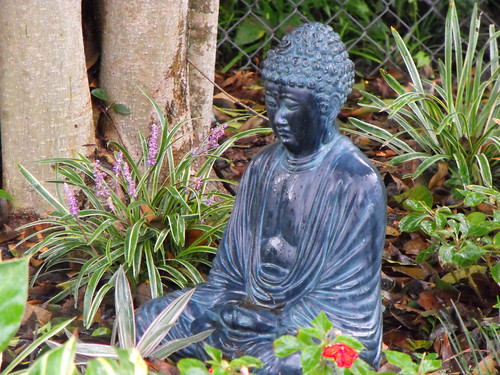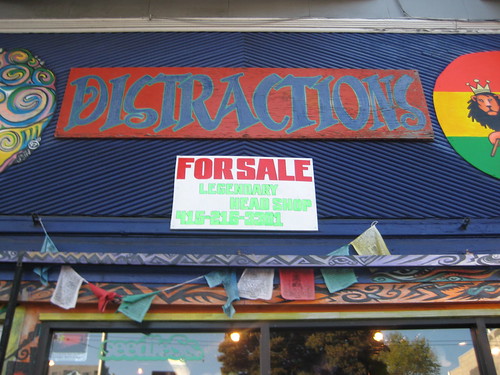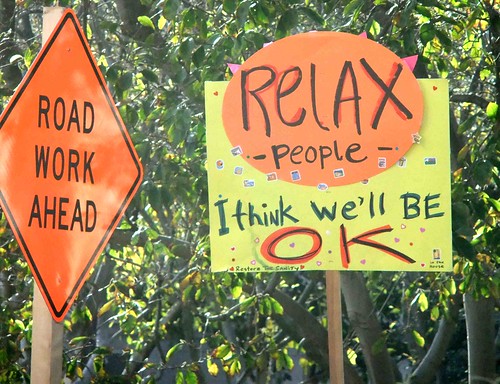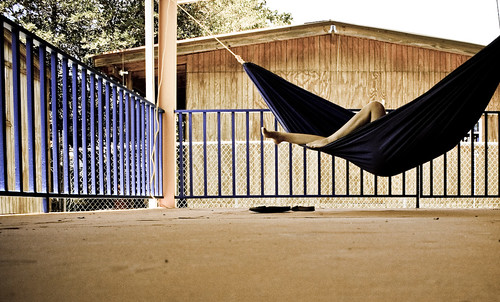
ralph and jenny's photostream. Thanks for sharing the photo.
I originally wrote this post back in 2009. But I practised this meditation again recently and I enjoyed such a wonderful boost to feeling healthy I decided to include it here. It's not what I 'strictly' call meditation but who wants things strict in meditation anyway? I prefer to think of it as visualising rather than meditating. The great thing about visualising is that you're using your imagination. You'll be using it creatively for making all sorts of wonderful sensations for feeling relaxed or energetic. What you get depends on your creativity, willingness to explore and some concentration, of course. For myself, this is a really simple way into relaxing and feeling refreshed. It's simple, imaginative and it works very well. I believe it'll work very well for you too. You might discover all sorts of fantastic ways to use your imagination.
Use it any time, anywhere you're not driving or operating machinery. You can successfully get the benefits whilst at work, sat in a cafe, on public transport, at home in front of the TV or computer.
To discover even more about how you can benefit from this, go through the 'features' list of this exercise near the bottom of the article. These are suggestion to enhance the experience and positive effects of this meditation.
After you have read the following suggestions close your eyes and practice this meditation.
- Begin by sitting comfortably with your back straight and head balanced naturally with your eyes looking forward.
- Place both your feet flat on the floor.
- Breathe naturally through your nose and relax.
- Imagine 'energy' or 'roots' moving down from the top of your head to the soles of your feet.
- Now imagine the roots moving down from both your feet into the ground below you.
- Move those roots deep into the earth below.
- Allow them to travel as far and as deep as feels natural to you.
- Keep this process comfortable and avoid forcing anything.
- When the 'roots' stop moving, sit still and calmly notice everything you can. However big or small. Inside of you, outside of you. Sit quietly for as long or as short as you like.
- Simply notice what you notice.
- Imagine nature's revitalising powerful energy entering your body via the roots.
- The energy will travel into the soles of your feet and move a natural easy-flowing course through your body.
- Intend the energy to move from the tips of your toes to the top of your head and everywhere in between.
- Have the intention that this natural energy will infuse every part of your body including it's organs, bones, capillaries, blood vessels, cells with revitalising power.
- Sit and enjoy this for as long as you like.
Features:
In the future you may like to be aware of more specific features of this exercise. These are made as questions to help you explore the wonderful changes you can make in yourself. I find they help me increase my skills and awareness of how easy it is to feel really good:
How relaxed do you become?
What is the colour or colours of your relaxation or the energy?
Where does the energy move?
What speed does the energy move?
Can you speed it up or slow it down?
Where do you feel the energy will be best used inside you?
What are all the different feelings it gives you?
Does it change the clarity of your thinking afterwards?
Does it increase your ability to be less distracted afterwards?
How still do you become when meditating like this?
When do you imagine this meditation will be useful in your life?
Remember to sit quietly, feet on the floor, back straight and relax. Then visualise roots spreading down inside your body, from the top of your head through your feet into the earth below. Use this whether you are sat at home, sat on a plane, train or the 34th floor of a tower. It doesn't matter where you are but what you are capable of doing to relax, meditate and feel good.
It's your imagination to to use any way you like. I hope you're really enjoying it.
Thanks for reading,
Jens





